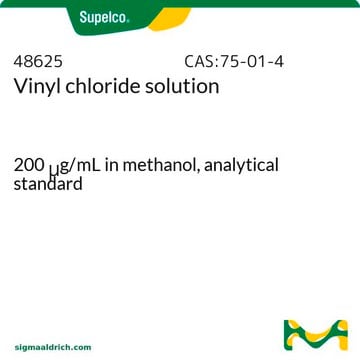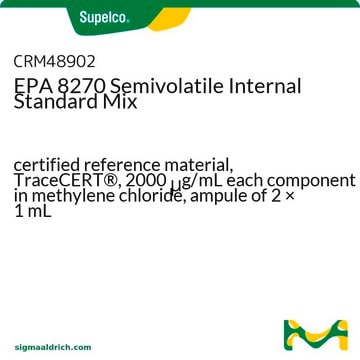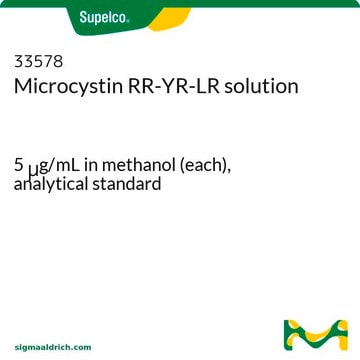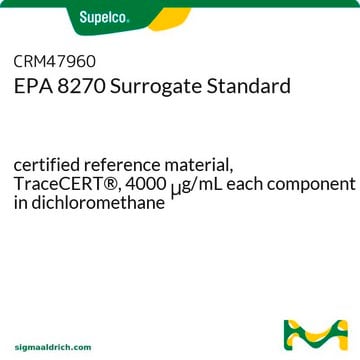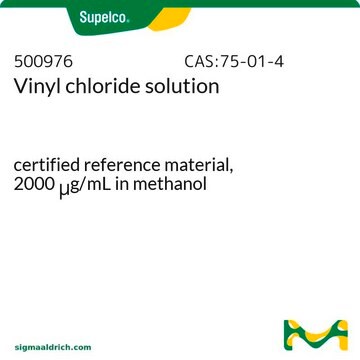48600
Dichloromethane solution
certified reference material, 200 μg/mL in methanol
Synonym(s):
Methylene chloride solution
About This Item
Recommended Products
grade
certified reference material
TraceCERT®
product line
TraceCERT®
CofA
current certificate can be downloaded
packaging
ampule of 1 mL
concentration
200 μg/mL in methanol
technique(s)
HPLC: suitable
gas chromatography (GC): suitable
density
0.791 g/cm3
application(s)
agriculture
environmental
format
single component solution
storage temp.
2-8°C
SMILES string
ClCCl
InChI
1S/CH2Cl2/c2-1-3/h1H2
InChI key
YMWUJEATGCHHMB-UHFFFAOYSA-N
Looking for similar products? Visit Product Comparison Guide
Application
Legal Information
signalword
Danger
Hazard Classifications
Acute Tox. 3 Dermal - Acute Tox. 3 Inhalation - Acute Tox. 3 Oral - Flam. Liq. 2 - STOT SE 1
target_organs
Eyes,Central nervous system
Storage Class
3 - Flammable liquids
wgk_germany
WGK 2
flash_point_f
51.8 °F - closed cup
flash_point_c
11 °C - closed cup
Choose from one of the most recent versions:
Already Own This Product?
Find documentation for the products that you have recently purchased in the Document Library.
Customers Also Viewed
Our team of scientists has experience in all areas of research including Life Science, Material Science, Chemical Synthesis, Chromatography, Analytical and many others.
Contact Technical Service
